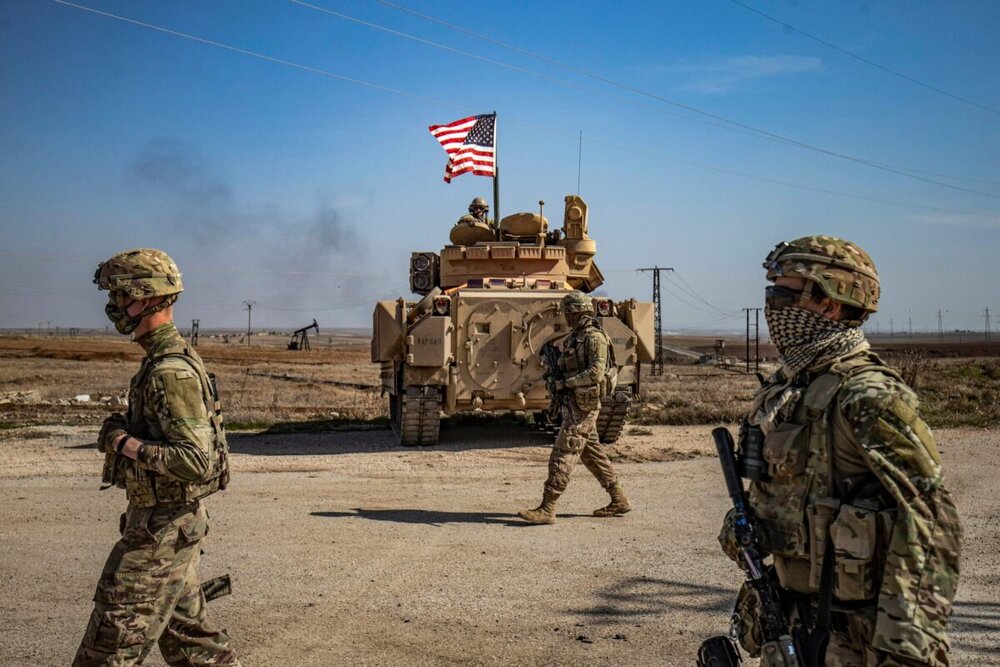U.S. redeploying military hardware in West Asia

The Pentagon says it is cutting the number of troops and anti-missile systems that had been deployed to West Asia. A spokesperson has confirmed a report by the Wall Street Journal, the first media outlet that broke the story, that eight Patriot battery units are being withdrawn from the region.
Pentagon spokesperson Jessica McNulty says that some of the units are being deployed to other countries and others will be returning to the United States for maintenance.
McNulty declined to comment on which countries or region the redeployed units are being relocated to. According to the Wall Street Journal report, citing sources from within the Biden administration; Patriot anti-missile batteries are being removed from Saudi Arabia, Jordan, Kuwait, and Iraq. The report says the anti-missile system THAAD (Terminal High Altitude Area Defense) is also being withdrawn from Saudi Arabia. Fighter jet squadrons are reportedly being reduced as well.
The report cites U.S. administration officials as saying that American troops who handle each battery will either be redeploying elsewhere or returning home. One patriot battery requires hundreds of troops and military contractors to operate and support the system.
According to U.S. officials, most of the military hardware will be removed from Saudi Arabia, where Washington has reportedly been trying to convince Riyadh to assume extra responsibility toward its own defense. The reductions are said to have started earlier this month following a phone call between U.S. Defense Secretary, Lloyd Austin, and Saudi Crown Prince, Mohammed Bin Salman on June 2. The new measures does not mean Washington will be significantly reducing its military presence in West Asia.
It does, however, represent a sharp reduction in military hardware deployed to the region at the height of military tensions between the U.S. and Iran around two years ago. The Wall Street report cites there is now less friction between Washington and Tehran amid indirect talks to revive the 2015 Iran Nuclear Deal in the Austrian capital Vienna.
This comes as the Biden administration has announced a military withdrawal from Afghanistan on September 11, two decades after invading the country. Biden’s announcement did however mean Washington missed a May deadline agreed between the Taliban and former President Donald Trump’s administration to end the American occupation of the country.
This has triggered an angry reaction from the militant group with a sharp rise in violence between Afghan government forces and the militants. Intra-Afghan talks in Doha, Qatar to find some common ground towards security is also proving difficult. Despite the removal of missile batteries, the U.S. will maintain its troops’ presence in Iraq and Syria. The Pentagon says “This decision was made in close coordination with host nations and with a clear eye on preserving our ability to meet our security commitments.
We maintain a robust force posture in the region appropriate to the threat and are comfortable that these changes do not negatively impact our national security interests. We also retain the flexibility to rapidly flow forces back into the Middle East as conditions warrant”. The Pentagon added that “The Defense Department maintains tens of thousands of forces in the Middle East, representing some of our most advanced air power and maritime capabilities, in support of US national interests and our regional partnerships".
The Wall Street Journal report says the redeployments represent a shift in foreign policy from Washington which views China and Russia as posing a greater threat than the alleged terrorism threat in West Asia. Beijing has denounced recent statements published at the NATO and G7 summits last week, which warned against China’s alleged security threats. The final communique by the G7 meeting held in England scolded China over a host of issues that are considered highly sensitive for Beijing.
These included alleged human rights violations in Xinjiang and Hong Kong, a “transparent” second study into the origins of covid-19, and “concerns” regarding the East and South China Seas as well as “peace and stability” across the Taiwan strait. China hit back saying “the days of small groups of countries ruling the world are long gone”.
Meanwhile, a meeting between U.S. President, Joe Biden, and his Russian counterpart, Vladimir Putin, in Geneva Switzerland, ended without a joint press conference. Washington accuses Moscow of increasing cybercrimes such as ransomware attacks and recent interference in U.S. Presidential elections. Russia has rejected the accusations, with Putin saying the U.S. has not provided any evidence to back up its claims.

Leave a Comment